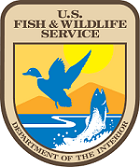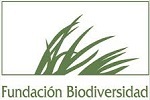Multiple Short Profiles — Grant makers are listed in alphabetical order by name of organization
The world is fortunate to have people who are deeply passionate about birds, wildlife, and habitat conservation – sometimes through professional interests, and other times as amateurs.
Numerous societies, associations, and networks connect persons who share such interests. Quite a few of them are grant makers, and many operate internationally.
Each organization below makes grants at the international level in one or more of its programs. We make no effort to distinguish professional groups from amateur groups. Eligibility for some categories of grants is restricted to members; other grants are open to a wider set of applicants. Many grants are for university students and young professionals.
Note: The Terra Viva Grants Directory also offers short profiles of Zoos, Botanic Gardens, and Museums.
African Bird Club
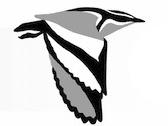 The African Bird Club is a UK registered charity which supports small to medium sized conservation projects in Africa. The Club aims to provide a worldwide focus for African ornithology.
The African Bird Club is a UK registered charity which supports small to medium sized conservation projects in Africa. The Club aims to provide a worldwide focus for African ornithology.
Geographical Distribution: Continental Africa and islands
ABC Conservation Program — three application deadlines per year
The African Bird Club is represented in the UK and over 30 other countries, mainly in Africa.
- The ABC Conservation Awards support small and medium-sized bird conservation projects in Africa for training courses, research on threatened species, and promotion of conservation and environmental awareness Applicants should be resident in Africa. The maximum grant is £3,000.
- The ABC Expedition Awards take place within continental Africa or adjacent islands, with a strong focus on conservation and birds. Expeditions can originate inside or outside of Africa. Expedition grants are up to £5,000.
Link to website
American Ornithological Society
The American Ornithological Society (AOS) is a merger of the American Ornithologists’ Union and Cooper Ornithological Society.
Geographical Distribution: Latin America
AOS Awards – application deadlines vary with each type of award
AOS offers several categories of awards, including research support for students and post-doctoral researchers in avian biology. It also makes capacity-building grants to support Latin American students enrolled in Latin American universities.
- AOU makes research, travel, and presentation grants of up to US$2,500 to students.
- The Kessel Fellowships for Ornithological Research support early-career researchers with up to US$15 thousand.
Grant seekers should also review the other award categories.
Link to website
American Society of Mammalogists
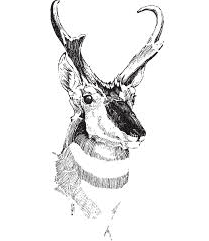 The American Society of Mammalogists (ASM) aims to promote interest in the study of mammals. The ASM is currently composed of around 2,500 members, many of whom are professional scientists.
The American Society of Mammalogists (ASM) aims to promote interest in the study of mammals. The ASM is currently composed of around 2,500 members, many of whom are professional scientists.
Geographical Distribution: Worldwide
Research Grants and Awards – application deadlines vary by program area
The ASM makes grants in several categories to support research of students and young professionals, including in Africa and Latin America.
- The Latin American Student Field Research award supports field projects by Latin American graduate students (grants are US$1,500).
- The Oliver P. Pearson award supports young professionals who hold academic positions in Latin American institutions (grants are up to US$5,000).
- The Africa Graduate Student Research awards are made to African nationals pursuing graduate degrees (grants are US$1,500).
Other ASM grant programs may also be relevant.
Link to website
American Society of Primatologists
The American Society of Primatologists aims to promote and encourage the discovery and exchange of information regarding primates.
Geographical Distribution: Worldwide
Grants and Awards for Research and Conservation – application deadlines vary by program area
ASP’s Research Grants are for capacity building, start-up funds, supplementary funding for students, and innovations in animal care and research technology.
- Most Research Grants are awarded to university students for international projects. Research Grants are up to US$1,500 for one year. There are no restrictions by nationality.
- Conservation Awards and Grants support field projects in countries of primate habitat. Conservation Awards are US$750, and Conservation Small Grants are up to US$2,000. There are no restrictions by nationality.
ASP also offers scholarships, legacy awards, student awards, and awards for recognition and service.
Link to website
Amphibian Ark
The Amphibian Ark carries out the ex situ components of the IUCN, Species Survival Commission’s Amphibian Specialist Group’s Amphibian Conservation Action Plan (ACAP).
Geographical Distribution: Worldwide
Conservation Grants for Small Start-Up and Rescue Projects – annual application deadline
Amphibian Ark (AArk) offers different conservation grants and emergency support to help fund start-up projects for ex situ amphibian conservation in native range countries. The focus is on threatened and endangered species needing conservation at the global level.
- Applicants are organizations such as zoos, research institutes, universities, etc. in any country.
- Grants are up to US$5 thousand.
Link to website
Amphibian Survival Alliance
The Amphibian Survival Alliance is the world’s largest collaborative effort dedicated to amphibian conservation, research and education.
Geographical Distribution: Worldwide
Leapfrog Conservation Fund – applications may be submitted at any time
The Amphibian Survival Alliance (ASA) is a consortium of organizations worldwide to protect amphibians and their habitats. Grant opportunities in association with the ASA include the Leapfrog Conservation Fund.
ASA posts funding guidelines and eligibility criteria for the Fund. Priority is given to the protection of habitat supporting Endangered and Critically Endangered amphibian species. There are no funding request limits or deadlines for submission.
Link to website
Animal Behavior Society
The Animal Behavior Society (ABS) is a non-profit organization dedicated to promoting and advancing the scientific study of animal behavior.
Geographical Distribution: Worldwide (but members only)
Grants and Awards – annual application deadline
The ABS is a nonprofit scientific society with worldwide membership; most current members are in North, Central, and South America. ABS offers Student Research Grants; Developing Nations Research Grants; Latin America Travel Awards; and several other grants and awards.
- Student Research Grants range from US$500 to US$2,000 each. Applicants must be enrolled in graduate university programs, and must be ABS members.
- Developing Nations Research Grants fund studies of animal behavior by graduate students and established research professionals. Applicants are graduate students as well as established researchers who reside and conduct research in an institution in a developing country.
- Latin America Travel Awards help Latin Americans to participate in ABS meetings. Awards vary according to funds available.
Link to website
Asian Waterbird Conservation Fund
The Asian Waterbird Conservation Fund aims to support projects on the ground in Asia that will lead to the conservation or protection of migratory waterbirds and their wetland habitats.
Geographical Distribution: East Asia
Conservation Projects — annual application deadline
Administered by WWF in Hong Kong, the Asian Waterbird Conservation Fund provides financial support to waterbird conservation projects in the East Asia – Australasian Flyway.
- The Fund supports groups such as NGOs and community organizations, and academic and research institutes.
- Grants do not exceed US$5,000 per project.
Link to website
Association of Avian Veterinarians
The Association of Avian Veterinarians is comprised of veterinarians from private practice, zoos, universities and industry, as well as allied personnel, technicians and students. The Association’s mission is to advance and promote avian medicine, stewardship, and conservation through education of its members.
Geographical Distribution: Worldwide
AAV Research Grants – annual application deadline
The AAV makes research grants that address clinical aspects of exotic and wild birds (diagnostic tests, drug doses, practice management, and conservation).
- Past grants include many on tropical bird species.
- Grants are limited to US$10 thousand per project for companion bird research, and US$5 thousand for research on the health of wild birds.
Link to website
Association of Field Ornithologists
The Association of Field Ornithologists (AFO) is one of the world’s major societies of professional and amateur ornithologists dedicated to the scientific study and dissemination of information about birds in their natural habitats.
Geographical Distribution: The Americas
Grants and Awards – annual application deadline
The Association of Field Ornithologists offers grants for field studies of birds through the Bergstrom Research Award and the Skutch Research Award.
The Bergstrom Award is for work in North America and Latin America; the Skutch Award is for work in Latin America. Grants are made to students, amateurs, and professional ornithologists (see specific eligibility criteria for each Award).
The Bergstrom award is up to US$1,500. The Skutch award is up to US$10,000.
Link to website
Association of Reptile and Amphibian Veterinarians
The ARAV aims to advance scientific research in the field of veterinary medicine and promote the conservation of all reptilian and amphibian species through education, captive breeding and preservation of reptilian and amphibian habitats.
Geographical Distribution: Worldwide
ARAV Research and Conservation Grant — annual application deadline
The ARAV makes small grants to support clinically-oriented and/or conservation research projects involving reptiles and/or amphibians.
- Proposals submitted by ARAV members will be given priority
- Typical awards are in the range of US$2,000 to US$3,000.
Link to website
Atlantic Whale Foundation
The Atlantic Whale Foundation aims to bring together individuals and organisations working toward the conservation and protection of whales and dolphins.
Geographical Distribution: Atlantic Ocean
Grants for Cetacean Education, Research, and Conservation — annual application deadline
The Atlantic Whale Foundation promotes activities and enlists support- volunteers, funding, expert advice- for the organisations within the network across the Atlantic Oceans.
Audubon Naturalist Society
The Audubon Naturalist Society is an independent environmental organization seeking to create a larger and more diverse community of people who treasure the natural world and work to preserve it.
Geographical Distribution: Worldwide
Crowder-Messersmith Conservation Fund — annual application deadline
The Crowder-Messersmith Conservation Fund supports small local conservation and/or education projects in developing countries. Grants are seed money to communities and individuals whose projects have not attracted major support from other sources.
- Applicants from countries other than the USA are especially encouraged to apply. U.S. researchers must have at least one local collaborator and consider how the project will benefit the local communities.
- Grants are a maximum of US$3,000 for up to one year.
Link to website
Bat Conservation International
Bat Conservation International is dedicated to finding solutions, benefiting bats and people, to secure the future of the world’s 1,300+ bat species in the midst of today’s unprecedented threats and challenges though scientific research.
Geographical Distribution: Worldwide
Grants and Scholarships – application deadlines vary by program
BCI offers grants and scholarships for bat research and conservation. Grants are to university students, conservation organizations, and individual researchers/conservationists.
- Grant seekers consult the calls for proposals to learn about current opportunities.
Link to website
Birdfair and Royal Society for the Protection of Birds
The RSPB is a UK based charity. The organisation focusses on scientific research to identify threats facing birds and the environment in order to implement actions to combat those threats. The RSPB is part of BirdLife International to implement worldwide conservation projects.
Geographical Distribution: Worldwide (but focus on UK)
Birdfair/RSPB Research Fund for Endangered Birds — annual application deadline
The RSPB awards the annual Conservation Science Award for original and outstanding doctoral research in conservation science.
- The award is open to postgraduate research students attending a university in the United Kingdom.
Link to website
British Herpetological Society
The British Herpetological Society is a registered charity devoted to herpetology. The society support conservation activities, scientific research, responsible captive breeding, field studies and conservation management work worldwide.
Geographical Distribution: Worldwide
BHS Student Grants and Conservation Fund — two application deadlines per year
The BHS offers small grants to university students in any country to support fieldwork and other research costs in herpetology.
- Student grants normally do not exceed £300. Priority is for grants in countries where funding is relatively difficult to obtain.
- The Conservation Fund is up to £1,500 for practical conservation work.
- Applicants do not have to be BHS members, although this is encouraged.
Additionally, the BHS administers a Conservation Fund for purchasing sites and managing habitat for amphibian and reptile conservation.
Link to website
British Ornithologists Union
The British Ornithologists’ Union (BOU) aims to encourage the study of birds in Britain, Europe and around the world, in order to understand their biology and to aid their conservation.
Geographical Distribution: Worldwide
BOU Research Grants – annual application deadline
BOU makes research grants on any aspect of ornithology in the UK and internationally.
- Small Research Grants: Grants are up to £2,000 to support small projects outright, and partly fund medium-sized programs. Applicants are amateurs and professionals in the UK and other countries.
- Career Development Bursaries: BOU supports short-term research support for young or early-career ornithologists between a first and higher degree, or immediately after completion of a higher degree. Awards of up to £2,500 support 6-10 weeks of work on a scientific research project in collaboration with a professional research group. There are no nationality restrictions.
Residents of developing countries can apply without being a BOU member.
Link to website
Cape Cod Bird Club
The Cape Cod Bird Club is dedicated to the protection and conservation of the bird life and natural resources relating directly or indirectly to the well-being or protection of birds.
Geographical Distribution: Worldwide (focus on Caribbean Region)
Conservation & Education – annual application deadline
The Cape Cod Bird Club offers grants to support conservation efforts relating directly or indirectly to the well-being or protection of birds.
- Grants are up to US$1,000.
- Deadlines: 01 May and 01 November each year.
Link to website
China Birdwatching Network
The China Birdwatching Network aims to promote bird studies and bird watching activities in China mainland.
Geographical Distribution: China
China Conservation Fund – annual application deadline
The Hong Kong Bird Watching Society established the HKBWS China Conservation Fund to make grants for projects on bird studies and bird watching in China.
- Application information is in Chinese.
- Grants are up to HK$10,000.
Link to website
Club 300 Foundation for Bird Protection
The Swedish Club300 Foundation for Bird Protection supports conservation and research on rare, threatened or little known bird species worldwide.
Geographical Distribution: Worldwide
Grants for Bird Protection – annual application deadline
The Club 300 Foundation for Bird Protection manages a bird protection fund, financed mainly by Swedish bird watchers.
- The Foundation makes grants for bird conservation worldwide. There are no nationality restrictions.
- Maximum grant size is US$5,000.
Link to website
Eastern Bird Banding Association
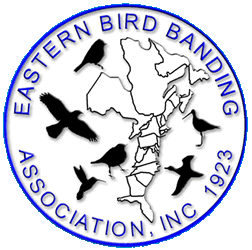 The Eastern Bird Banding Association aims to encourage investigations into the biology and migration of birds by banding and ornithological studies.
The Eastern Bird Banding Association aims to encourage investigations into the biology and migration of birds by banding and ornithological studies.
Geographical Distribution: The Americas
Research Grants Using Banding Techniques and/or Bird Banding Data — annual application deadline
The EBBA gives priority to research being conducted on species that spend at least part of their life cycle in any U.S. state or Canadian province included in EBBA territory. It will also consider projects that are planned for other portions of the United States, North America, or the Western Hemisphere.
- EBBA particularly encourages research studies that have conservation or management implications.
- Grants are up to US$1,000.
Link to website
Hawk Migration Association of North America
The Hawk Migration Association of North America (HMANA) aims to advance the scientific knowledge and promote conservation of raptor populations through study, enjoyment, and appreciation of raptor migration.
Geographical Distribution: The Americas
Hawk Watch Fund – annual application deadline
The Hawk Watch Fund makes grants for field studies relating to raptor migration ecology and behavior, population monitoring, and conservation.
- The geographical scope of grant making is the Americas.
- Grants are up to US$1,000.
Link to website
International Herpetological Symposium
The International Herpetological Symposium aims to provide a yearly symposium for the dissemination of information and research pertaining to the conservation biology, captive management, and propagation of amphibians and reptiles.
Geographical Distribution: Worldwide
Grants for herpetological research, conservation, and education — annual application deadline
IHS provides financial assistance to individuals and organizations conducting herpetological research, conservation, and education. Applicants may be anyone from the herpetological community.
- Subject areas include herpetological natural history, herpetological conservation biology, captive propagation, and herpetological education.
- Grants are up to US$1,000.
Link to website
International Iguana Foundation
The International Iguana Foundation (IIF) generates public awareness of threats facing iguanas today and the important role that iguanas play in maintaining healthy ecosystems.
Geographical Distribution: Worldwide
Conservation Grants – annual application deadline
IIF promotes and enables iguana conservation through partnerships with scientists, educators, and organizations committed to preserving the Earth’s biodiversity. Priority is for projects contributing to the survival of endangered iguanas and their habitats.
- IIF gives preference to projects that are part of established conservation programs; that have matching funds; and that have participation from iguana range countries.
- Most grants are less than US$10,000.
Link to website
International Otter Survival Fund
The International Otter Survival Fund (IOSF) is dedicated to the conservation, protection and care of otters through scientific research in the UK and around the world.
Geographical Distribution: Worldwide
Grants for Otter Conservation — applications may be submitted at any time
IOSF works globally to conserve all 13 species of otter by helping to support scientists and others in practical conservation, education, research, and rescue and rehabilitation.
- IOSF does not have an application form. Applicants contact IOSF to provide the following information: title of proposal; location; species; aim of project; need for the project; methods; desired achievement; personnel involved and their experience; timetable; budget; and names, organizations, addresses, and contact email of two referees.
Link to website
International Primatological Society
The International Primatological Society (IPS) is a scientific, educational, and charitable organization focused on primates. It encourages scientific research in all areas of study, facilitates international cooperation among researchers, and promote primate conservation.
Geographical Distribution: Worldwide
Grants for Research and Conservation – annual application deadline
IPS makes grants to support primate care in captivity; primate conservation in the field; conservation education; conservation training; and research.
- Applicants for the Southwick Award (conservation education) and the Galante Award (education and training) must be residents of habitat countries.
- Grants are up to US$2,500.
Link to website
Neotropical Bird Club
The Neotropical Bird Club (NBC) aims are to foster interest in Neotropical birds among birdwatchers, support conservation in the region, encourage birdwatchers there to contribute to bird conservation.
Geographical Distribution: Latin America and the Caribbean
Conservation Fund — applications are reviewed two times each year
The Neotropical Bird Club’s Conservation Fund awards grants to nationals and/or residents of countries in the Neotropics (i.e. the Caribbean region, Central America, and South America).
- Priority is for research projects that have a conservation focus in relation to globally threatened bird species on IUCN’s global red list.
- Research grants are US1,500; US$3,000; and US$5,000.
Link to website
Neotropical Ornithological Society The Neotropical Ornithological Society supports research and conservation projects of Neotropical birds and their habitats, including both their breeding and non-breeding areas.
Geographical Distribution: Latin America and the Caribbean
Francois Vuilleumier Fund for Research on Neotropical Birds — annual application deadline
The Neotropical Ornithological Society manages the Francois Vuilleumier Fund to make grants for thesis studies of neotropical birds.
- Eligibility for funding extends to students from Latin America and the Caribbean enrolled in graduate degree programs at institutions in the Neotropical Region.
- Grants are generally US$500 to US$1,000.
Link to website
Oriental Bird Club
Oriental Bird Club is a UK registered charity with the aim to encourage an interest in wild birds of the Oriental region and their conservation, promote the work of regional bird and nature societies, and collate and publish information on Oriental birds.
Geographical Distribution: Asia
OBC Conservation Fund — two application deadlines per year
OBC’s Conservation Fund encourages studies of globally threatened birds and their habitats in Asia. Grants are made to individuals and institutions. Most grants are to Asian nationals.
- Small conservation awards are up to £1,500.
- The OBC also offers special and emergency awards (applications are accepted at any time).
Link to website
Ornithological Council
The Ornithological Council is an association of ornithological organisations based in the Americas involved in bird study and conservation. The Council focuses not only on issues affect birds and their survival, but also the needs of ornithologists.
Geographical Distribution: Latin America and the Caribbean
Small Grants for Ornithological Research in Latin America and the Caribbean — call for proposals
The Ornithological Council might publish calls for proposals (last call in 2016) for projects in ornithological research and conservation in Mexico, Central America, the Caribbean, and South America.
- An applicant must be willing to join an OC member society if he/she receives an award and is not already a member.
- Grants are up to US$10,000.
Link to website
Ornithological Society of the Middle East
The Ornithological Society of the Middle East (OSME) is a British-based ornithological and birdwatching club for people interested in the birds of the Middle East, the Caucasus and Central Asia.
Geographical Distribution: Middle East and Central Asia
Conservation and Research Fund – applications are reviewed three times per year
OSME makes research grants to support bird survey, research, and education in the Middle East, the Caucasus region, and Central Asia.
- Priority is for projects conducted by nationals in the regions of interest.
- There is no limit on grant size, but most grants are £1,000 to £5,000.
Link to website
Pacific Seabird Group
The Pacific Seabird Group (PSG) is an international professional ornithological society dedicated to the study and conservation of Pacific seabirds and their environment.
Geographical Distribution: Asia-Pacific
Craig S. Harrison Conservation Fund – applications may be submitted at any time
The Pacific Seabird Group is dedicated to the study of Pacific seabirds and their environment. The PSG manages the Craig S. Harrison Conservation Fund. The Fund makes grants for conservation of seabirds in the Pacific Ocean, and for expanding seabird expertise in developing countries within or bordering the Pacific Ocean.
- Priority for grants is to citizens of developing countries in the Pacific region. However, other applicants also qualify for grants under certain circumstances (see explanation on PSG’s website).
- Most grants are between US$250 and US$2,000.
Link to website
Rainforest Biodiversity Group
The Rainforest Biodiversity Group (RBG) is a nonprofit charitable organization in the USA that works for biodiversity conservation, with a focus on habitat for the Great Green Macaw and migratory birds.
Geographical Distribution: Worldwide
Small Grant Program – annual application deadline
RBG makes small grants for the protection of wildlife and wildlife habitat in the Neotropics. The funding can be used to support scientific research, environmental education, sustainable economic development (e.g., eco-tourism), and other conservation activities.
- Grants are to university graduate students and nonprofit organizations and associations.
- There are no nationality restrictions. Grants are up to US$1,500.
Link to website
Raptor Research Foundation
The Raptor Research Foundation (RRF) is an ornithological society, focusing on the behavior, ecology, and conservation of birds of prey.
Geographical Distribution: Worldwide
Grants and Awards – annual application deadline
The Raptor Research Foundation offers several categories of awards and grants in support of research on raptors, as well as for student recognition and travel.
- The Leslie Brown Memorial Grant is for research and/or dissemination of information on African birds of prey. There are no nationality restrictions. Grants are up to US$2,500.
- The Dean Amadon Grant supports work on the distribution and systematics (taxonomy) of raptors worldwide. There are no nationality restrictions. Grants are up to US$2,000.
- The Stephen R. Tully Memorial Grant supports student and amateur research, and conservation of raptors. There are no nationality restrictions. Grants are up to US$1,000.
Other categories of RRF funding may be relevant for international research projects.
Link to website
Seabird Group The Seabird Group aims to promote and help coordinate the study and conservation of seabirds. The Group organizes regular international conferences and provides small grants towards research and survey projects.
Geographical Distribution: Worldwide (focus on Atlantic seabirds)
Small Grants — applications are reviewed twice per year
The Seabird Group awards small grants each year, usually for research projects or censuses. Grants can also support promotion of sea birds to the general public.
- Applications are considered from any individual or group. Priority is given to Seabird Group members working on Atlantic seabirds.
- The maximum grant is £500.
Link to website
Sirenian International
Sirenian International is a grassroots organization dedicated to manatee & dugong research, education, and conservation worldwide.
Geographical Distribution: Worldwide
Grants – no formal application process.
Sirenian International is interested in supporting research, conservation, and education projects focused on manatee and dugong populations around the world. In the past, the foundation has awarded over 15 small grants to projects worldwide.
- Grant recipients include researchers, manatee scientists, university graduate students, and local conservation networks and NGOs.
- Sirenian International does not have an application form. Applicants may contact the foundation to provide information about their project.
Link to website
Snow Leopard Network
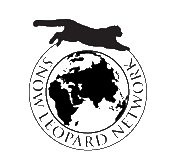 The Snow Leopard Network (SLN) is a worldwide organization dedicated to facilitating the exchange of information between individuals, organizations and governments for the purpose of snow leopard preservation.
The Snow Leopard Network (SLN) is a worldwide organization dedicated to facilitating the exchange of information between individuals, organizations and governments for the purpose of snow leopard preservation.
Geographical Distribution: Worldwide
Grants for Research and Conservation – annual application deadline (last call for conservation grants in 2016)
The Snow Leopard Conservation Grant Program is designed to support education, research, or conservation projects on snow leopards that meet the needs identified in the Snow Leopard Survival Strategy (SLSS).
- Grant recipients are scientists and educators in the snow leopard range countries; international professionals working closely with (or hosted by) range-country counterparts; and graduate students of many nationalities.
- Most grants range from US$1,000 to US$8,000.
Link to website
Society for Conservation Biology
The Society for Conservation Biology (SCB) is an 501(c)3 non-profit international professional organization devoted to scientific study of the maintenance, loss, and restoration of biological diversity.
Geographical Distribution: Worldwide
Marine Conservation Research Small Grants — annual application deadline
The Society for Conservation Biology Marine Section manages the Conservation Small Grants Program to fund worthy conservation projects around the globe.
- Applicants must be members of the Society for Conservation Biology’s Marine Section.
- Priority is given to individuals from developing countries, and those working in developing countries.
- Grants range from US$750 to US$1,000.
Link to website
Society for Marine Mammalogy
The Society for Marine Mammalogy aims to promote the global advancement of marine mammal science and contribute to its relevance and impact in education, conservation and management.
Geographical Distribution: Africa, Latin America, Asia-Pacific, and Russia.
Marine Mammal Research – annual application deadline
The Society makes grants for field research on marine mammals in emerging and developing countries. Funds are for the purchase of equipment; travel to field sites; and other fundamental components of conducting research.
- Preference is for nationals of emerging and developing countries, particularly students and early career researchers, who are conducting research in their home countries. Applications are particularly welcome from nationals of Africa, the Asia-Pacific region, countries of the former USSR, and Latin America.
- Grants are up to US$2,000.
Link to website
Society for the Study of Amphibians and Reptiles
The Society for the Study of Amphibians and Reptiles (SSAR) supports education, conservation, and research related to reptiles and amphibians.
Geographical Distribution: Worldwide
SSAR Grants in Herpetology – annual application deadline
SSAR makes grants to individuals and organizations engaged in herpetological research, education, and conservation at the international level.
- Grant categories include conservation projects; field research; laboratory research; herpetological education; and travel to field sites. Some grant categories are restricted to SSAR members and students.
Link to website
Sonoran Joint Venture
The Sonoran Joint Venture (SJV) is a partnership of diverse organizations and individuals from the southwestern United States and northwestern Mexico that commit to the conservation of all bird species and habitats within this range.
Geographical Distribution: USA and Mexico
Grants for Bird Conservation in USA/Mexico – annual application deadline
Sonoran Joint Ventures supports the SJV Awards Program to fund research and conservation of birds and their habitats in the southwestern United States and northwestern Mexico.
- Grants are intended to promote binational cooperation in habitat management; research; monitoring; education; community involvement; outreach; planning; ecotourism; and professional training.
- SJV Awards range from US$5,000 to US$15,000.
Link to website
Southwestern Association of Naturalists
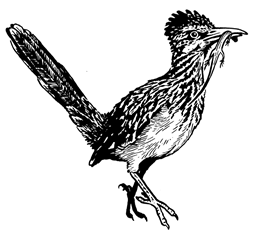 The Southwestern Association of Naturalists was founded to promote the field study of plants and animals (living and fossil) in the southwestern United States, Mexico, and Central America and to aid in the scientific activities of its members.
The Southwestern Association of Naturalists was founded to promote the field study of plants and animals (living and fossil) in the southwestern United States, Mexico, and Central America and to aid in the scientific activities of its members.
Geographical Distribution: USA, Mexico, and Central America
Student Awards — most have an annual application deadline
The Southwestern Association of Naturalists (SWAN) makes awards to university students for research in natural history.
- Research grants of up to US$1,000 support any aspect of research on biota of the southwestern United States, Mexico, and Central America.
- Other categories of awards support students for travel and presentation at SWAN’s annual meetings. The travel awards are given to students enrolled at universities outside the USA.
Link to website
Turtle Conservation Fund
The Turtle Conservation Fund (TCF) is a strategizing and funding partnership coalition of leading turtle conservation organizations and individuals focused on ensuring the long-term survival of tortoises and freshwater turtles.
Geographical Distribution: Worldwide
TCF Grants — two application deadlines each year
The Turtle Conservation Fund is a consortium of conservation organizations and individuals focusing on the long-term survival of tortoises and freshwater turtles.
- The Fund makes grants for projects on tortoises and freshwater turtles that are critically endangered or endangered (IUCN’s Red List), or which may be highly threatened but not yet officially classified on the Red List. Grants are to organizations and individuals, especially in developing countries.
- Grants in the regular program are up to US$5,000. Seed grants are up to US$1,000.
Waterbird Society
The Waterbird Society, formerly known as the Colonial Waterbirds Society, is a United States based ornithological society, focusing on the behavior, ecology, and conservation of waterbirds.
Geographical Distribution: Worldwide
Research Grants – annual application deadline (grants are not offered in all years)
The Waterbird Society is an international organization of biologists, researchers, conservationists, students, and others interested in the behavior, ecology, and conservation of waterbirds. The Society periodically makes grants for waterbird research.
- The Nisbet Research Award focuses on research and conservation on terns and gulls.
- The Kushlan Research Award supports scientific advances in the biology, ecology, and conservation biology of wading birds. Both awards are open to students, professionals, and amateurs worldwide.
- The Waterbird Society Research Award covers basic research on species not covered by other Waterbird Society grants.
- Grants range from US$1,000 to US$7,000.
Link to website
Wilson Ornithological Society
The Wilson Ornithological Society’s primary focus is the scientific study of birds, but WOS also encourages and supports public interest in birds. The Society welcomes involvement of amateur members.
Geographical Distribution: Worldwide
Awards and Research Grants – annual application deadline
The Wilson Ornithological Society offers several categories of research grants. Applicants may be citizens of any country. Membership in WOS is encouraged, but not required.
- The Louis Agassiz Fuertes Award is available to all ornithologists, with preference for graduate students and young professionals. The grant amount is US$2,500.
- The George A. Hall / Harold F. Mayfield Award is for independent non-professional researchers without other access to funds or facilities. The grant amount is US$1,000.
- The Wilson Ornithological Society Research Grants are for work in any area of ornithology. Two of these awards are limited to research by masters students. The grant amount is US$1,500.
- The Paul A. Steward Awards are for studies of bird movements based on banding, analysis of recoveries, and returns of banded birds – with emphasis on economic ornithology. The grant amount is US$1,000.
Link to website

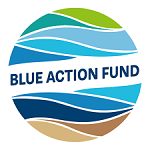
 The African Bird Club is a UK registered charity which supports small to medium sized conservation projects in Africa. The Club aims to provide a worldwide focus for African ornithology.
The African Bird Club is a UK registered charity which supports small to medium sized conservation projects in Africa. The Club aims to provide a worldwide focus for African ornithology. The American Society of Mammalogists (ASM) aims to promote interest in the study of mammals. The ASM is currently composed of around 2,500 members, many of whom are professional scientists.
The American Society of Mammalogists (ASM) aims to promote interest in the study of mammals. The ASM is currently composed of around 2,500 members, many of whom are professional scientists. The Eastern Bird Banding Association aims to encourage investigations into the biology and migration of birds by banding and ornithological studies.
The Eastern Bird Banding Association aims to encourage investigations into the biology and migration of birds by banding and ornithological studies. The Snow Leopard Network (SLN) is a worldwide organization dedicated to facilitating the exchange of information between individuals, organizations and governments for the purpose of snow leopard preservation.
The Snow Leopard Network (SLN) is a worldwide organization dedicated to facilitating the exchange of information between individuals, organizations and governments for the purpose of snow leopard preservation. The Southwestern Association of Naturalists was founded to promote the field study of plants and animals (living and fossil) in the southwestern United States, Mexico, and Central America and to aid in the scientific activities of its members.
The Southwestern Association of Naturalists was founded to promote the field study of plants and animals (living and fossil) in the southwestern United States, Mexico, and Central America and to aid in the scientific activities of its members.